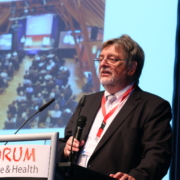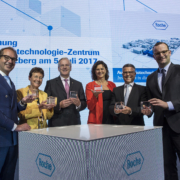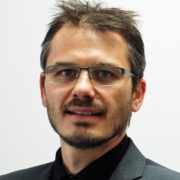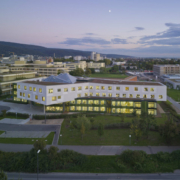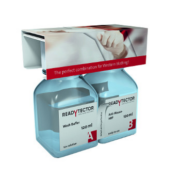As part of a €5bn investment by 2025, the Free State of Bavaria will kick off two ambitious digital medicine projects next year, government officials said at the Forum Science & Health.
ADVERTISEMENT
At the opening ceremony for R&D, training and production buildings at Roche Penzberg, the Pharma giant said that Foundation Medicine (FMI) will establish a digital oncology service at the site offering oncologists across Europe decision support in personalised medicine.
Belgian diagnostics company Biocartis Group NV and Singpore’s A*STAR ETPL have kicked off development of a multimodal breast cancer assay designed to guide therapy selection in personalised medicine.
Small molecule cancer drug developer 4SC AG (Planegg-Martinsried, Germany) has completed a capital increase fueling development of its clinical programmes for resminostat, 4SC-202 and 4SC-208
German biotech company Biontech AG has published positive clinical results for its individualised cancer vaccine Ivac mutanome in patients with late-stage melanoma.
Venture capitalist Seventure Partners announced that it has participated in a US$13m financing of Japanese biotech company Anaeropharma Science. The investment is made from Seventure’s Health for Life Capital investment vehicle.
German-Spanish biotech Sygnis AG has made changes to its management team and supervisory board. Heikki Lanckriet, who was previously Co-CEO, will become sole CEO of Sygnis and will also retain his role as Chief Scientific Officer.
Last December, Noxxon Pharma AG signed an agreement with Merck & Co./MSD to evaluate the synergistic potential of NOXA1/2 and pembrolizumab immune cancer therapy. Now, the companies have kicked off a Phase I/II study in patients with pancreatic and colorectal cancer.
ReadyTector is an easy, quick and clear all-in-one detection solution for Western blotting.
The concept has been around for more than a century, but recent advances in the field are causing numerous experts to say it’s widely underused. The goal of allergen immunotherapy (AIT) is to induce a specific immune tolerance by confronting patients with increasing levels of allergens. AIT developers are now working on improving efficacy and safety, while at the same time trying to speed up the still lengthy process of desensitisation. Peanuts in particular are in the crosshairs, as they cause one of the most life-threatening common allergies in humans.


